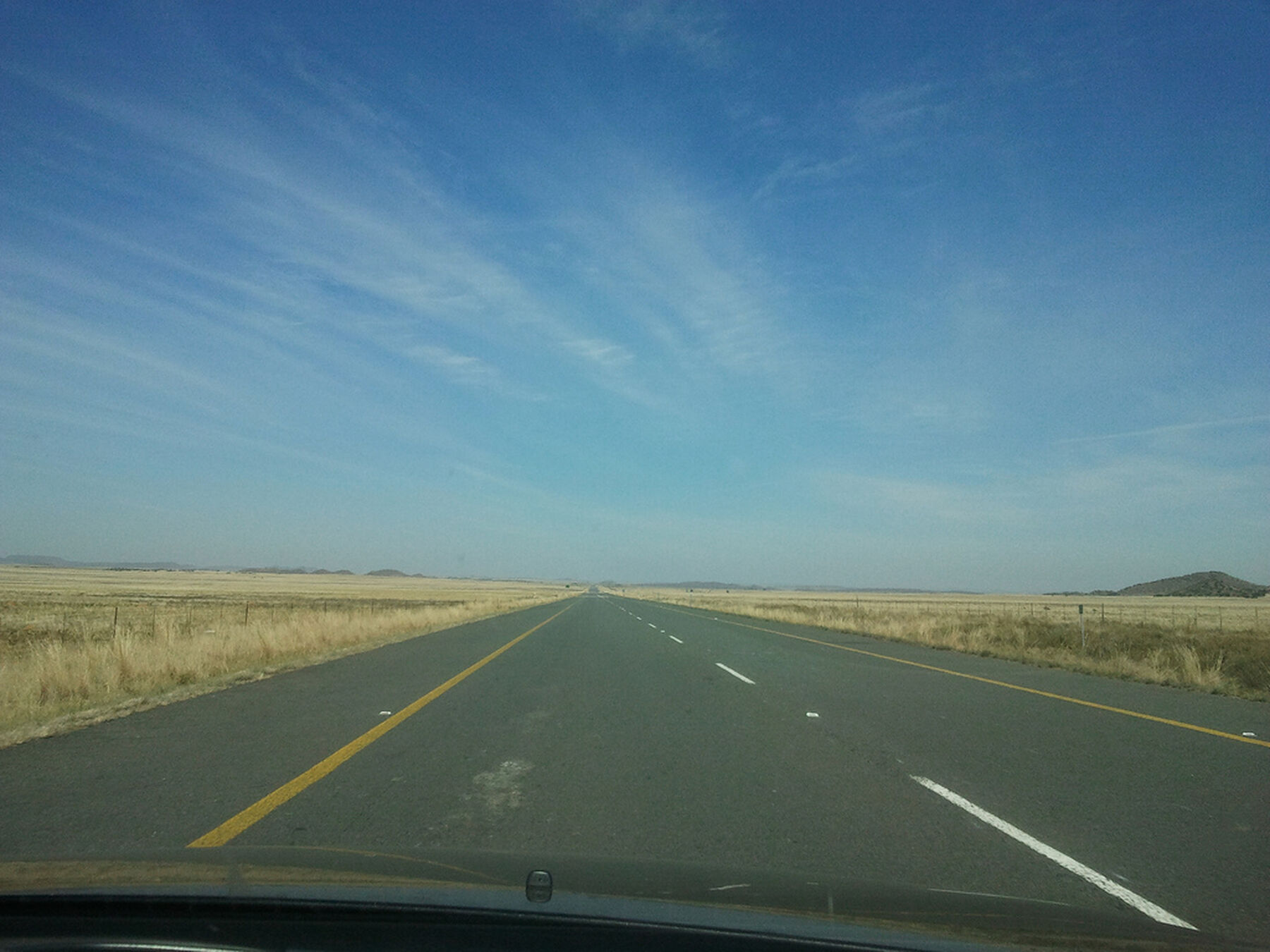During this summer’s Flow School, Flowstar Colin Ford facilitated a blog-writing workshop, encouraging even our non-writers to show off their talents. Over the next few weeks, we’ll be publishing the homework assignments from that session. This is the first of the series.
The Free State is generally seen as a seemingly endless space you have to pass through to get to something more interesting, for those leaving Gauteng.
Characterised by vast panoramas of nothingness and the endless, unchanging roads that lead to mountains and coast, it’s not a place that is particularly valued. There is a different perspective that frenetic Gautengers could consider, though – how incredibly free it is of clutter.

Clutter pretty much seems to define our lives these days. Visual clutter, audio clutter, brain clutter, physical clutter. We are over-faced, over-fed, over-informed and overwhelmed at every turn. And, as the term suggests, it is an untidy state of affairs.
Some of the clutter we surround ourselves with is very well-intentioned. In this age of environmental consciousness we are encouraged to reduce, reuse and recycle. This means saving plastic bags, cardboard boxes, once-used plastic flower pots, chairs with a broken leg and old hamster cages.
Give yourself a tick for saving the planet but on a much more micro scale, those cupboards, drawers and storerooms that were fairly empty are now pretty much full of clutter, and your conscience won’t let you do anything about it.
Some clutter has gathered insidiously, without us even really noticing it, so that it is now accepted as part of our everyday visual landscape. Outdoor advertising has always been a part of our cities’ canvas in the form of shop signage, posters and the occasional billboard.
But slowly, slowly, it has crept into every aspect of our city streets. There is no leafy suburban street that is free of street pole ads, no panoramic vista free of massive billboards, no architectural edifice free of a building wrap. Banners, bunting, branded bus stops, screens, streamers, signs, video displays, flashing neon lights, enormous inflatable cartoon characters, flags, balloons and newspaper headlines – all there to add to the visual mayhem we need to navigate on a daily basis.
Ever busy, our social and working lives have now become unbearably cluttered. We have hundreds of followers and friends on social networks – sometimes thousands – all clamouring for attention, all needing “likes” and birthday wishes and responses, cluttering our time with their demands, opinions and activities.
For the best visual representation of how cluttered our lives have become, take a look at a company’s weekly calendar with, say, five people’s schedules highlighted. Watch all of the white space magically disappear as meetings and commitments overlap in a rainbow of frenetic activity.
Don’t be fooled by the white spaces that may appear between 8pm and 6am that isn’t uncluttered, free time. That’s when the actual living happens. And by living I mean parenting, washing, eating, exercising, puppy training, shopping, gardening, socialising, driving and changing light bulbs and toilet rolls. It’s also when you have to dedicate time to appeasing all your online friends whose status you never got around to acknowledging (or applauding) during the day.
Our brain channels have also become cluttered. Where we used to need to respond to one or two stimuli at a time, we now need to channel so many sources of input that our brains are like overloaded electrical boxes with multiple cables intertwining and threatening to blow. We are trying to process signals from conversations, phone calls, emails and Skype, text and WhatsApp messages while keeping in touch with what’s happening on the web and who’s sitting around the boardroom table.
Even if you are “relaxing “ while watching TV, your brain has to absorb the cricket game you are watching at the same time as the player stats, venue stats, updates on conditions, history of both teams, hot spots, bowling stats and supporters’ dancing skills. All of this on a screen that occasionally becomes even more cluttered to allow an ad to sneak in on the side, asking you, ironically, if you need more space!
We have had to develop fairly sophisticated filters as survival tools to be able to extract what we need from all the clutter. Semi-intentional blindness, deafness and blaming faulty technology have become our 21st century coping skills (“Sorry, I saw your email but haven’t opened it yet”; “My phone’s been playing up”; “My Internet was down.”)
Some of us take bags of old plastic pots and faulty printers to dumpsters under cover of darkness and on the same trip, remove a few posters from our neighbourhood lampposts. We also have mercy-culling on social networks at times, and (horror of horrors) don’t always answer our phones.
But maybe, when all else fails, we should consider relooking the Free State. Here is a destination that rarely features on any tourist itineraries due to its lack of attractions and general emptiness. And that may be the point that is being missed: instead of apologising for its lack of anything noteworthy, it should embrace this fact and turn it into a selling point.
“The Free State. Land of Nothing.” No noise, no visual pollution, no Internet coverage, no traffic jams, no cell signals – just a wide open vista of clutter-free space. Sounds appealing.
